Vet team arrives at Nanning Bear Farm
24 July 2014
Animals Asia has sent a team to Nanning for a second week of health checks and surgery at Nanning Bear Farm.
Having begun on Monday, the team of two vets and three nurses will spend three more days at Nanning Bear Farm – which Animals Asia is turning into a sanctuary – with health checks concluding on Thursday.
The number of bears the team are able to treat will depend on a number of factors including how the bears react to anaesthetic and what health issues are discovered during examinations.
This follows a veterinary team who travelled to Nanning in June. Working in intense heat on the floor of the former bile farm, the vets were able to conduct health checks to rule out terminal cancer in one bear and to perform dental surgery on five others.
Animals Asia had intended to initially transfer around 30 farm bears to its Chengdu Bear Rescue Centre for medical treatment.
However, three months on, Animals Asia is still awaiting the permits required from local authorities to begin the transportation, which has meant pursuing alternative medical solutions for the bears.
The initial 30 bears were to be followed by a further 30. The aim was to design and build a sanctuary for the remaining 70 bears. If permit delays continue then there will be a need to expand plans on the Nanning site accordingly.
Nic Field, Bear and Vet Team Director said:
“The majority of the bears on the farm require dental work and with these health checks we can address any pain they might be living with.
“Ideally we would have moved the sick bears back to Chengdu to address their health condition with a fully equipped veterinary hospital and team. However we will continue to do all we can as the circumstances allow.
“The advantage we have now is that we have had all the bears on a nutritious diet for a couple of months. When we first went in all the bears were under weight and it is fair to say malnourished. Now, for most of the bears, body condition has improved accordingly.”
“Where bears’ weight hasn’t increased, it’s possibly because they are having difficulty eating due to dental issues, but it could also be because there are underlying causes internally. On this visit we are prioritising the thin bears so we can address 'why' and respond appropriately.”
Animals Asia founder and CEO, Jill Robinson MBE said:
“The delay is a frustration for us, but while it continues the best we can do is to come up with alternative ways of offering help and care for the bears. These vet trips allow us to continue making improvements to their lives and, overall, we are seeing brighter, more curious, and healthier bears.”
The possibility of a third vet trip is also being investigated for early autumn.
BACK
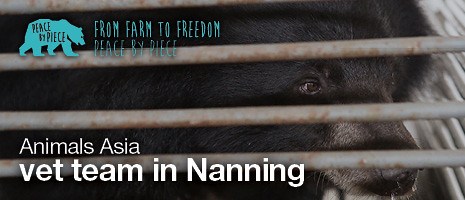
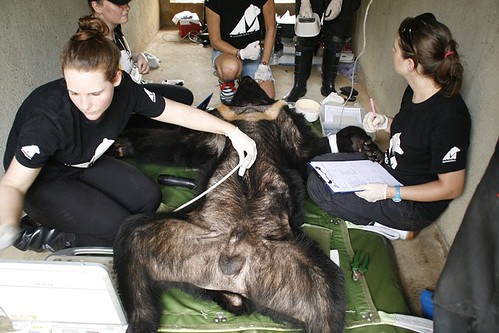
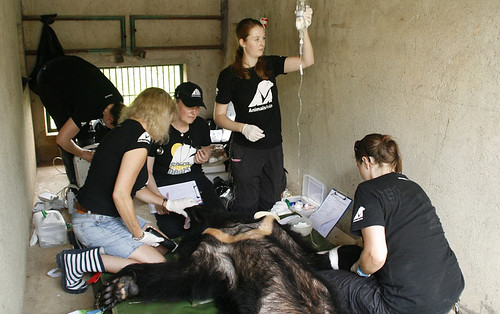




 Freedom after two decades: Moon bears Nang and Mua rescued
Freedom after two decades: Moon bears Nang and Mua rescued
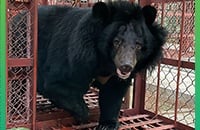 With heavy hearts we say goodbye to our beloved Tulip
With heavy hearts we say goodbye to our beloved Tulip
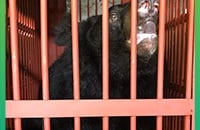 Three moon bears rescued from notorious bear bile farming hotspots in Vietnam
Three moon bears rescued from notorious bear bile farming hotspots in Vietnam